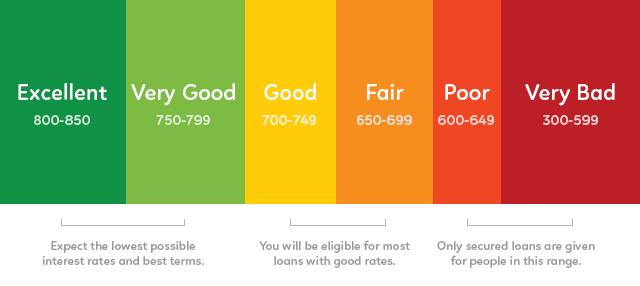Global analytics company Fair Isaac Corporation is making a change to how they measure FICO credit scores, which could cause vast changes to the scores of many American consumers.
While some may see their credit score drop, others could see it rise. It’s the first time the company has offered two versions of its score, the FICO 10 and 10T.
The 10T will differ from its general score by using trend data and looking back at over 24 months of past credit.
“Many lenders want to leverage the most comprehensive data possible to make precise lending decisions,” Jim Wehmann, executive vice president for Scores at FICO said in a statement. “By offering a score that taps further into trended data, we’re able to give lenders greater flexibility and predictive power, as well as ease of integration.”
Using trend data is nothing new. FICO’s competitor VantageScore introduced the method in its 4.0 version in 2017.
How FICO 10T could impact your score
The changes were introduced because lenders asked for more comprehensive data, Wehmann said. Credit card defaults could reduce by as much as 10%, while auto lending defaults could fall by about 9%, the company estimates. Mortgage lenders could see an even bigger default drop of 17%.
The new scores won’t be used by major credit bureaus before the summer so you have time to prepare. It could also take longer for lenders to use the new scoring system as it requires a new coding system. At the moment, the FICO 8 is used for the majority of lending decisions, while the FICO 2, 4 or 5 is used for mortgage loans.
FICO scores are used to help lenders determine how likely you are to pay back a loan and is a summary of your credit score.
The new model will check your debt level and see if it’s been on the rise and whether or not you have been making timely payments on your debt, especially credit cards. Unlike current models, which only look back at the last few months, the 10T will calculate a score based on your debt payment over the past year.
How to prepare for the new FICO score
The new changes could make your score drop if your credit card balances have gone up recently or if you’ve applied for additional credit. However if you don’t use many credit cards or pay them off on a regular basis, it’s possible your score could rise.
Check your score to see if you need to make any changes. Good credit is considered anything between 670 and 739, while anything below 580 is bad and you’re unlikely to get a loan without a hefty interest rate.

If you are looking to make a major purchase over the summer, such as for a house or car, prepare now. Pay down any outstanding credit cards and make sure you have an emergency fund so you don’t need to resort to credit cards. Stay on top of any loan payments, such as mortgages or student loans so lenders know you pay on time. If you struggle to pay your credit card every month, reduce your spending and set up a budget so you rely less on credit cards.












